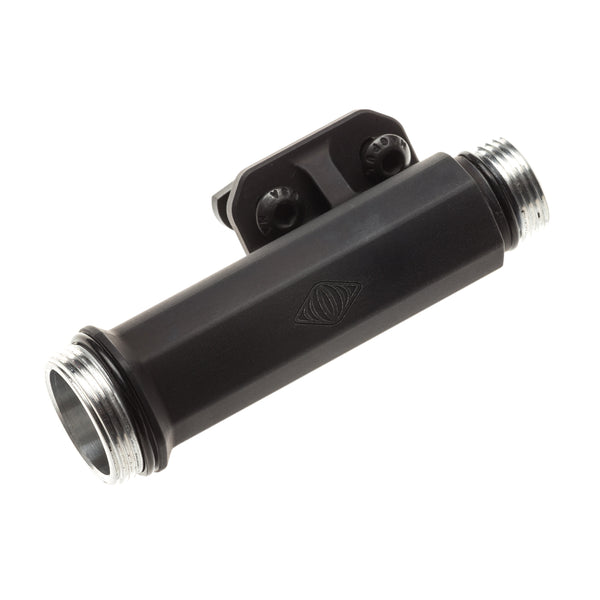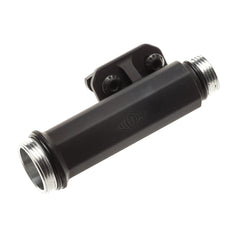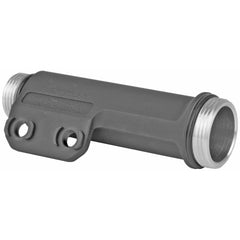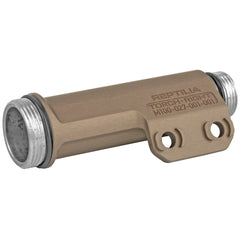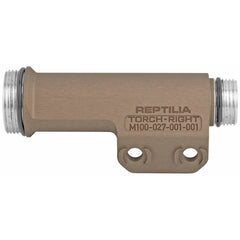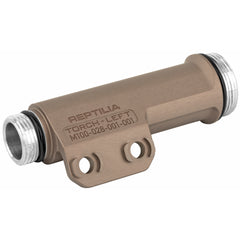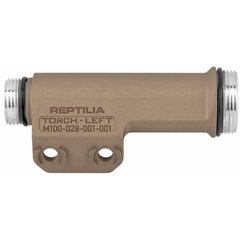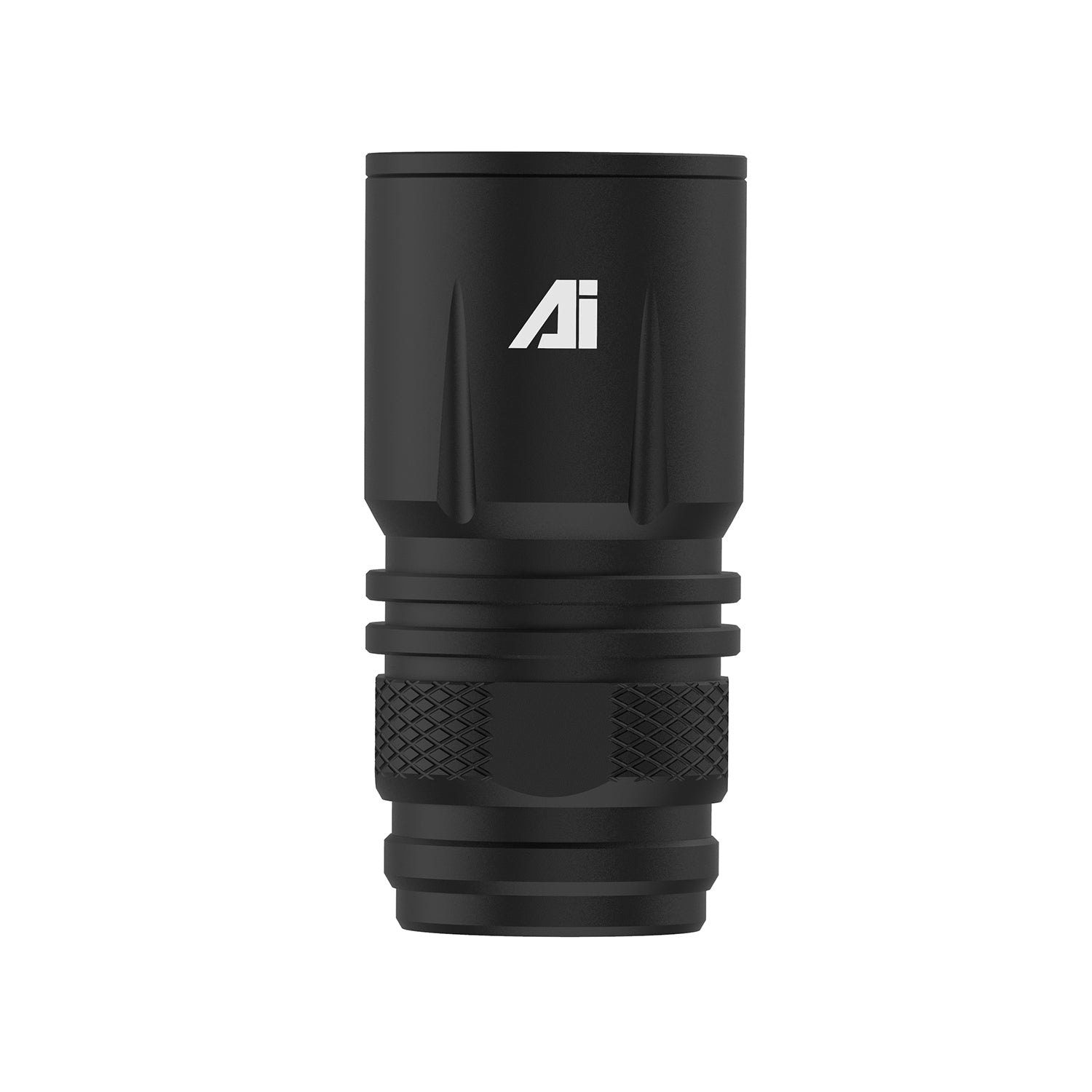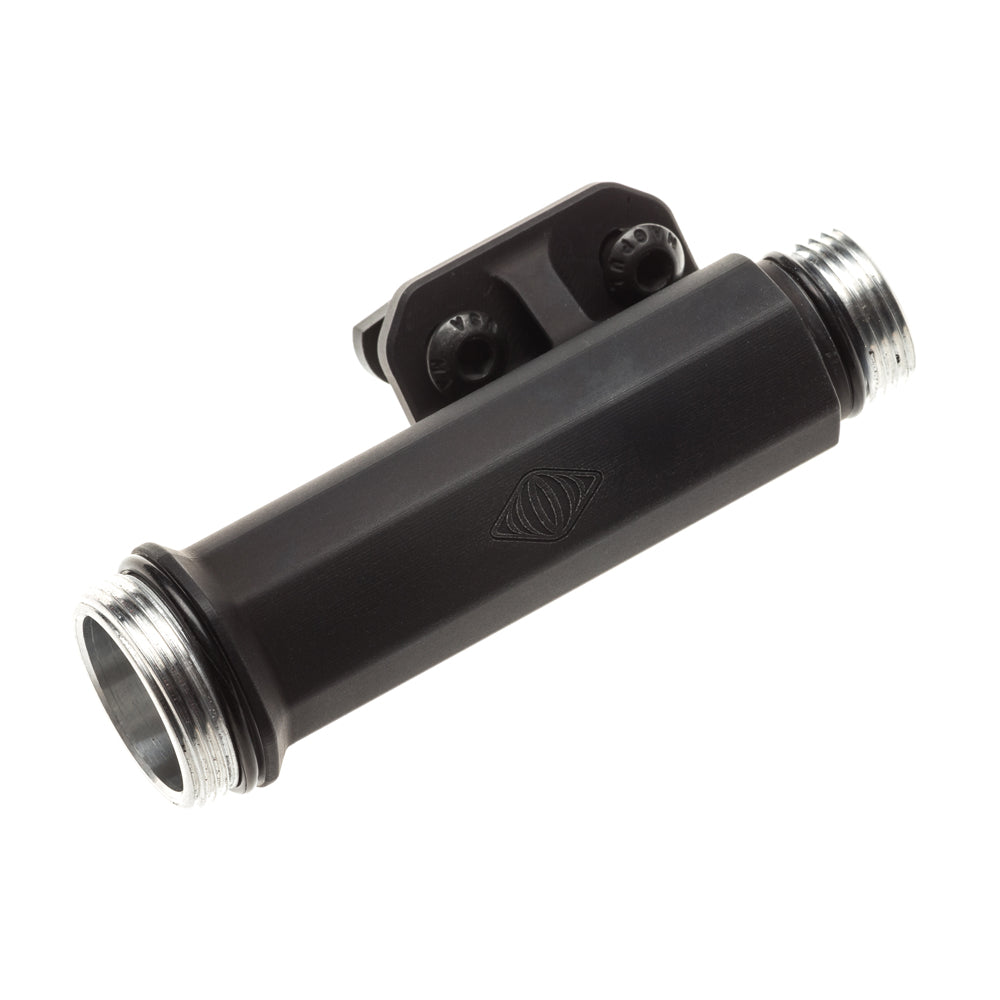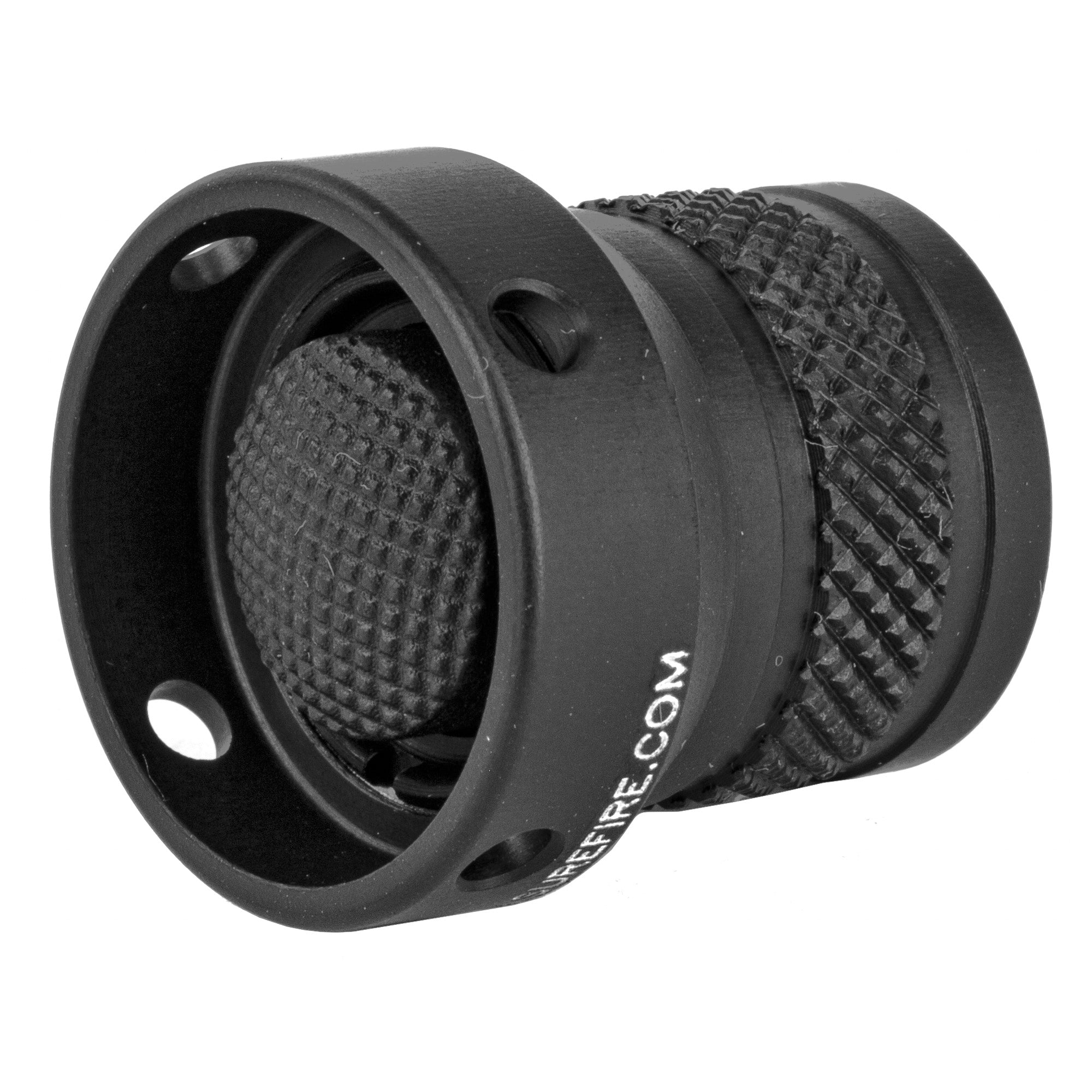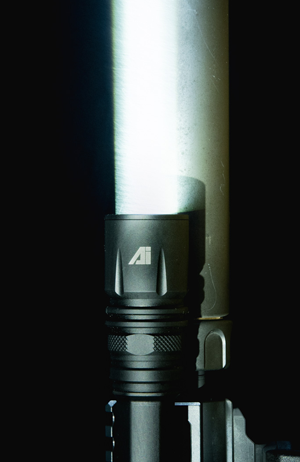Reptilia TORCH™ - 6V/18650 M-LOK® LIGHT BODY
TORCH™ Dual Fuel/18650 Light Body with Integral M-LOK® Mount. Machined from aircraft grade billet aluminum with Milspec Type III Hardcoat Anodized finish, the TORCH is optimized for use with the ATPIAL/PEQ 15, NGAL, and other top-mounted aiming laser devices. Featuring an integral uni-body M-LOK interface it is not only low profile, but provides the most robust M-LOK weapon light mounting solution on the market today.
Available immediately in both left and right hand variants, the TORCH Dual Fuel/18650 is compatible with Modlite Systems and SureFire® M600DF Scout bezels and tail caps. The TORCH 18650 is available in MIL-STD Type III, Class 2, hard anodize, black and “Tobacco”.
|
FEATURES: |
| Machined from billet 6061-T6 aluminum |
| MIL-STD, Type III, hardcoat anodized |
| Magpul® M-LOK® Hardware |
| 37 grams |
| Made in USA |

What is Proposition 65?
- Proposition 65 requires businesses to provide warnings to Californians about significant exposures to chemicals that cause cancer, birth defects or other reproductive harm. These chemicals can be in the products that Californians purchase, in their homes or workplaces, or that are released into the environment. By requiring that this information be provided, Proposition 65 enables Californians to make informed decisions about their exposures to these chemicals.
- Proposition 65 also prohibits California businesses from knowingly discharging significant amounts of listed chemicals into sources of drinking water.
- Proposition 65 requires California to publish a list of chemicals known to cause cancer, birth defects or other reproductive harm. This list, which must be updated at least once a year, has grown to include approximately 900 chemicals since it was first published in 1987.
- Proposition 65 became law in November 1986, when California voters approved it by a 63-37 percent margin. The official name of Proposition 65 is the Safe Drinking Water and Toxic Enforcement Act of 1986.
What types of chemicals are on the Proposition 65 list?
The list contains a wide range of naturally occurring and synthetic chemicals that include additives or ingredients in pesticides, common household products, food, drugs, dyes, or solvents. Listed chemicals may also be used in manufacturing and construction, or they may be byproducts of chemical processes, such as motor vehicle exhaust.
What does a warning mean?
If a warning is placed on a product label or posted or distributed at a workplace, a business, or in rental housing, the business issuing the warning is aware or believes that it is exposing individuals to one or more listed chemicals.
By law, a warning must be given for listed chemicals unless the exposure is low enough to pose no significant risk of cancer or is significantly below levels observed to cause birth defects or other reproductive harm.
What does the phrase “known to the State of California to cause [cancer] [birth defects or other reproductive harm]” in a Proposition 65 warning actually mean?
Under the Proposition 65 statute, “known to the state to cause [cancer] [birth defects or other reproductive harm]” means the chemical has been added to the Proposition 65 list by one of four listing mechanisms.
Who administers Proposition 65?
The Office of Environmental Health Hazard Assessment (OEHHA) administers the Proposition 65 program. OEHHA, which is part of the California Environmental Protection Agency (CalEPA), determines in many cases whether chemicals meet the scientific and legal requirements for placement on the Proposition 65 list, and administers regulations that govern warnings and other aspects of Proposition 65.
Who enforces Proposition 65?
The California Attorney General's Office enforces Proposition 65. Any district attorney or city attorney (for cities whose population exceeds 750,000) may also enforce Proposition 65. In addition, any individual acting in the public interest may enforce Proposition 65 by filing a lawsuit against a business alleged to be in violation of this law.
Lawsuits have been filed by the Attorney General's Office, district attorneys, consumer advocacy groups, and private citizens and law firms.

